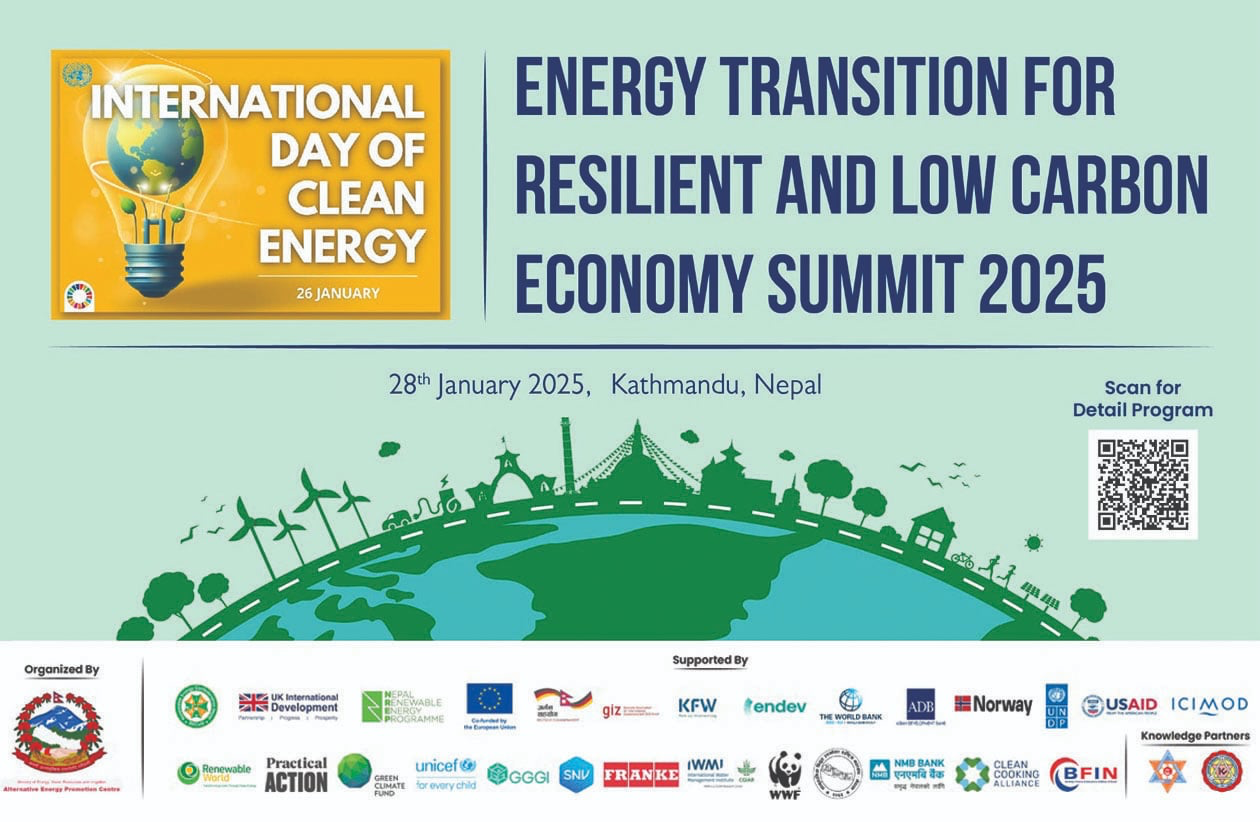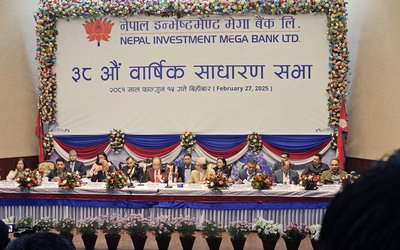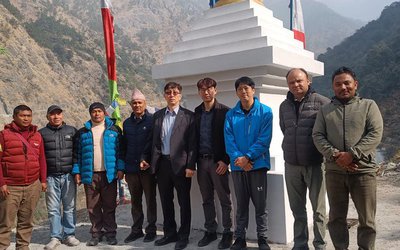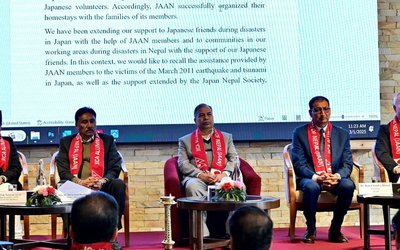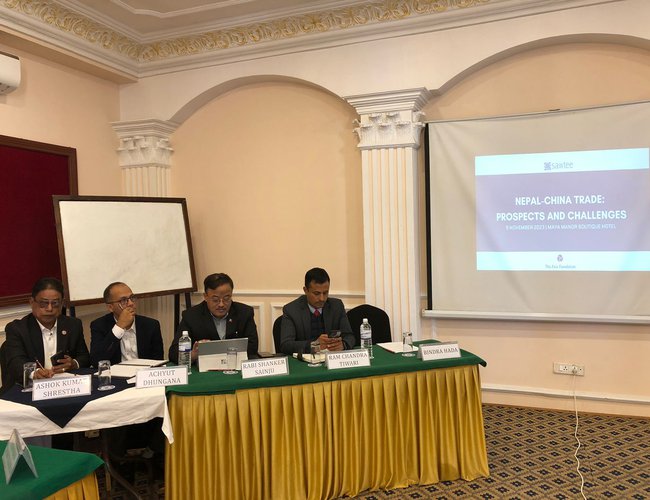
With significant disruptions to cross-border trade between Nepal and China stemming from the 2015 earthquake and the global COVID-19 pandemic, Nepal’s trade with China is yet to return to normal. The specific challenges arising from the sanitary and phytosanitary (SPS) measures impacting Nepali products require prompt attention, as do the specific issues surrounding transportation, connectivity, and logistical aspects, in both exports and imports. This agenda was put forth during a roundtable discussion titled "Nepal-China Trade: Prospects and Challenges," organized today by South Asia Watch on Trade, Economics, and Environment (SAWTEE). The discussion programme was supported by The Asia Foundation (The Foundation).
The discussion centred on the trade relationship between Nepal and China, examining the challenges within the overall trade ecosystem that have contributed to the lacklustre export performance. According to a study conducted by SAWTEE on Nepal-China Trade, between 2020 and 2022, over 90 percent of the value of goods exported to China from Nepal were covered by the zero-duty list for the least developed countries (LDCs), but the utilization of preferences averaged 68 percent.
Rupesh Tha, Research Officer, SAWTEE, highlighted in his presentation that although China stands as Nepal's second-largest trading partner, the trade balance has distinctly favoured China.
Tha said it is vital for Nepal to fully harness the advantages of zero-tariff treatment provided to over 8,000 products originating in Nepal and diversify its exports to China. Current bilateral agreements, such as the trade and payment agreement 1981, are outdated and ill-suited to the present circumstances and need to be reviewed, he noted. This is particularly pertinent as Nepal grapples with a significant trade deficit with China, he further added.
Rabi Shanker Sainju, Former Joint Secretary, Ministry of Industry, Commerce and Supplies (MOICS), Government of Nepal, said that Nepal's trade with China is adversely affected by the high transportation costs resulting from its inadequate logistics infrastructure. With the evolution of the landscape of the Chinese consumer market, demand for high-quality products has increased, and this must be taken into account when looking to boost exports to China, he added.
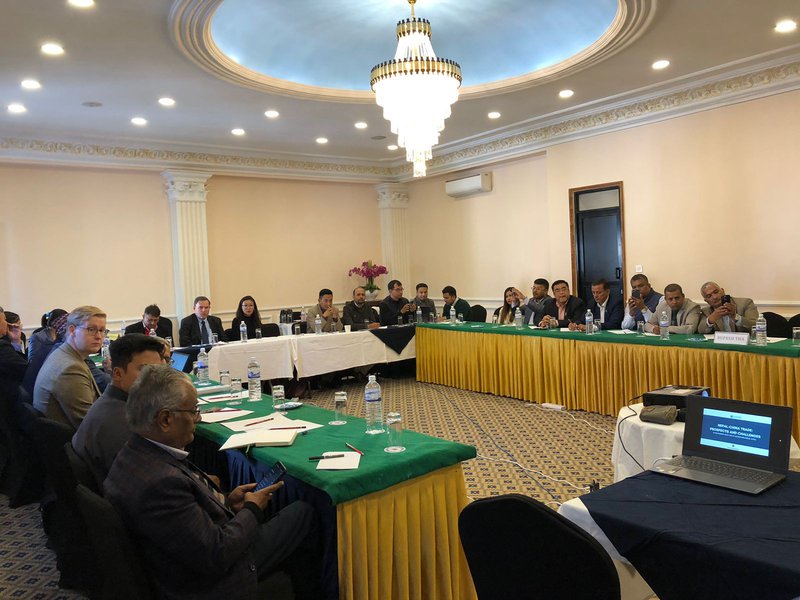
Achyut Dhungana, Under Secretary, MOICS, Government of Nepal, identified four key factors that should be considered for enhancing trade with China: infrastructure and logistics, the negotiation and execution of trade agreements, market access, and the facilitation of cross-border payments. A, said Dhungana informed that a meeting has already been held to discuss the review and amendment of the trade and payment agreement signed between the MOICS and the Chinese Ministry of Commerce to enhance bilateral trade relations.
Ashok Kumar Shrestha, Chairman, Nepal Trans Himalaya Border Commerce Association, emphasized the need for enhancing trust between stakeholders (public and private sectors) of the two countries, in addition to improving infrastructure, logistics, and connectivity, to build trust to give a boost to Nepal-China trade ties. Highlighting the need for meeting phytosanitary requirements for the export of Nepali products to China, Shrestha suggested establishing a multifunctional quarantine laboratory.
Bindra Hada, Former Secretary, Government of Nepal, highlighted the longstanding history of bilateral trade relations between the two countries.
Delivering the special remarks in the programme, Ram Chandra Tiwari, Joint-Secretary, MOICS, Government of Nepal, said that Nepal's incentive structure doesn't place enough emphasis on supporting entrepreneurship, startups, and the overall industrial ecosystem, leading to a lackluster export performance. Moreover, he noted that the three-tiered structure of government under federalism has diminished collaboration between the different levels of government, resulting in ineffective resource utilization and subpar export performance.
Participants drew attention to evaluate the trade consequences for Nepal following its graduation from the LDC category in 2026. They further suggested that studies on Nepal-China trade should also look into the impact on trade with China and the existing tariff benefits provided by China, and explore alternative trade agreements and provisions to safeguard Nepal's trade with China in the years after graduation.
- Rain and snowfall, a sigh of relief for farmers
- Mar 02, 2025
- Japan Is Nepal’s Trusted Friend: VP Yadav
- Mar 02, 2025
- Weather Forecast: Generally Cloudy With Rain Koshi Province And Partly Cloudy To Mainly Fair In Bagmati And Madhesh Provinces
- Mar 02, 2025
- Geneva Visit Successful: Foreign Minister Dr. Deuba
- Mar 01, 2025
- NEA Makes Rs. 11.36 Billion Profit In 6 Months
- Mar 01, 2025
